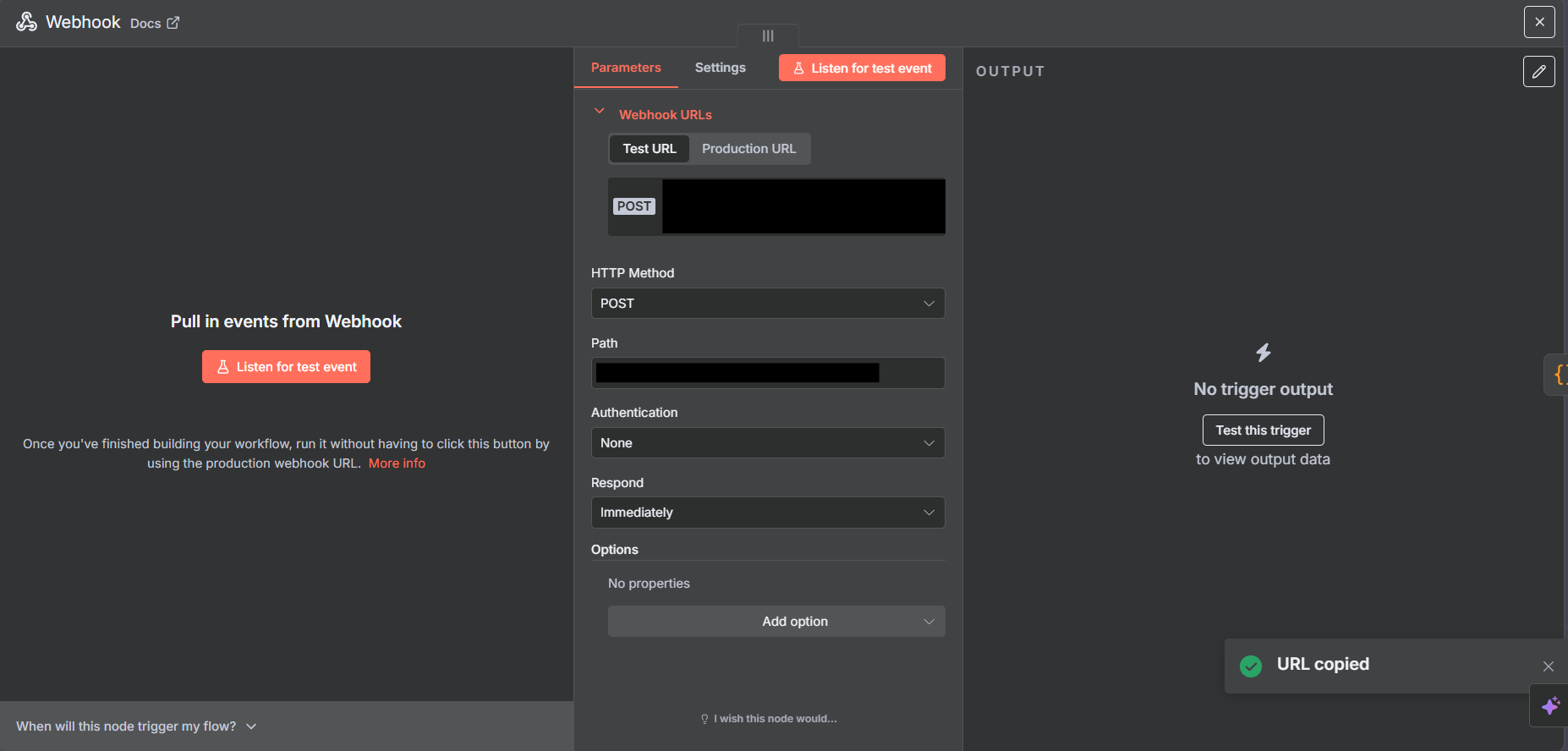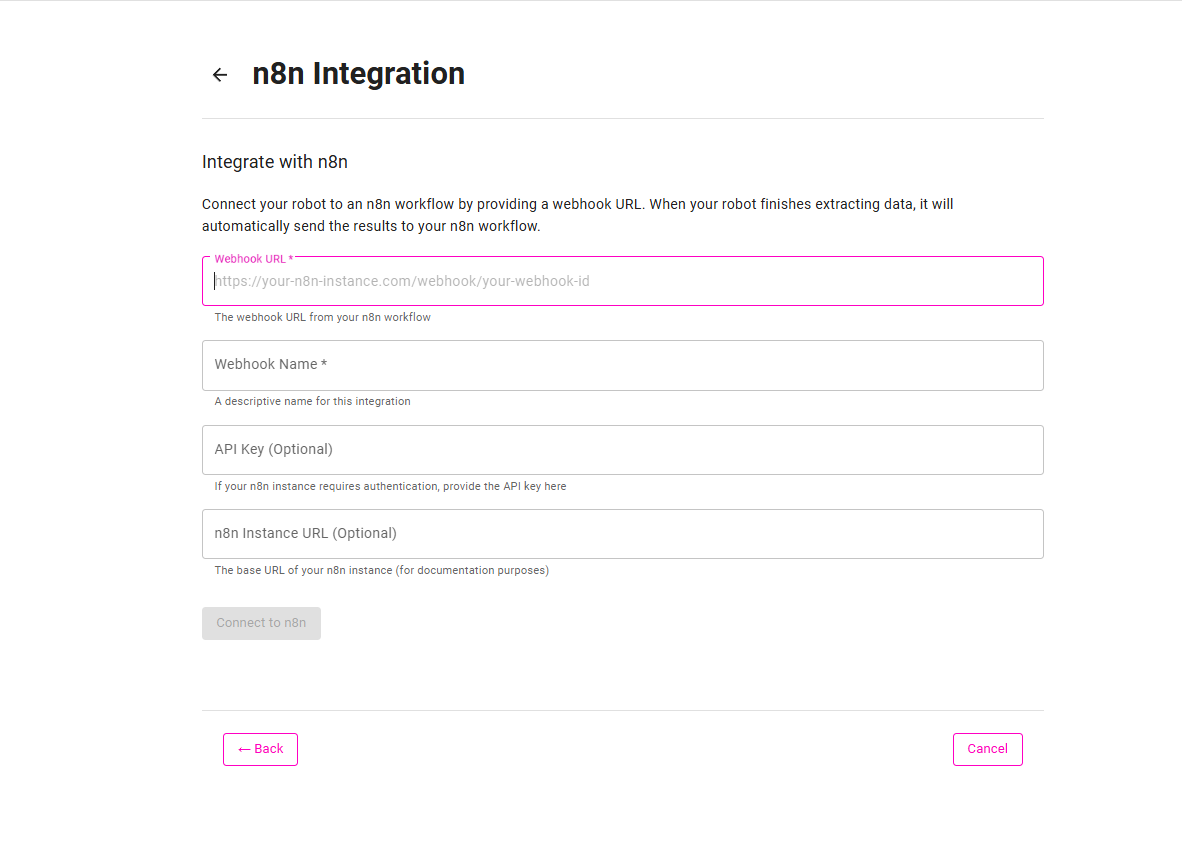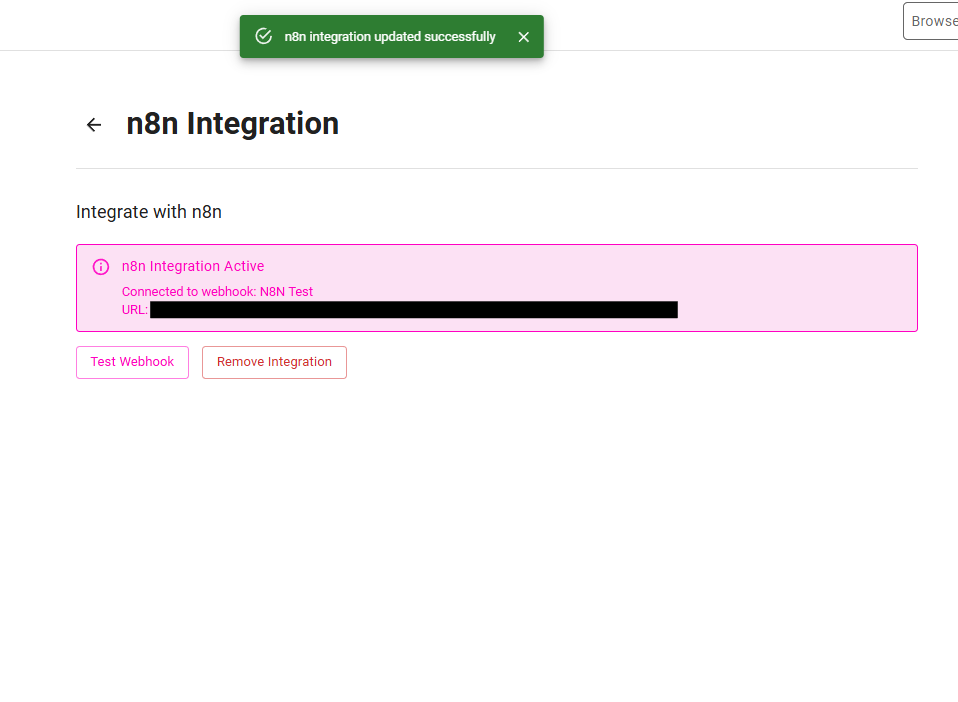N8N
Note: N8N integration is available exclusively in Maxun Cloud. This feature is not available in self-hosted installations.
Overview
N8N integration allows you to automatically send the data extracted by your robot directly to your N8N workflow via webhook. Whenever the robot completes a successful run, the captured data is sent as a POST request to your configured n8n webhook endpoint, enabling seamless automation and data processing within your n8n workflows.
Key Features
- Automatic Data Sending: Every successful robot run sends the captured data directly to your n8n webhook endpoint.
- Real-Time Workflow Triggers: As soon as a run is complete, your n8n workflow is triggered with the fresh data.
- Flexible Data Processing: Use n8n's powerful workflow capabilities to process, transform, and route your extracted data.
Important Note
The data extracted before integrating with n8n will not be sent to your workflow. Only the data extracted after the integration will be sent to your n8n webhook.
Setting Up n8n Integration
Step 1: Configure Webhook in N8N
Create a webhook trigger node in your N8N workflow and copy the webhook URL.

Step 2: Set Up Integration in Maxun

Configure the webhook endpoint in your robot integration settings with the following fields:
Required Fields:
- Webhook URL: The n8n webhook endpoint URL (obtained from Step 1)
- Webhook Name: A descriptive name for this webhook integration
Optional Fields:
- API Key: Optional authentication key for additional security
- n8n Instance URL: Your n8n instance URL (if using a custom/self-hosted instance)

Step 3: Test the Integration
Run your robot to test the webhook integration or use the Test Webhook button. The extracted data will be sent to your N8N workflow.
Data Format
When your robot sends data to n8n, it will be structured as follows:
[
{
"headers": {
"user-agent": "axios/0.26.1",
"content-type": "application/json",
"accept": "application/json, text/plain, */*"
},
"params": {},
"query": {},
"body": {
"robot_id": "a286c468-d4de-48bf-9555-7aca3df23b30",
"run_id": "488f4109-fa61-4222-b72c-74e00b17c142",
"robot_name": "Your Robot Name",
"timestamp": "2025-08-12T19:46:52.025Z",
"data": [
{
"Field1": "Extracted Value 1",
"Field2": "Extracted Value 2",
"Field3": "Extracted Value 3"
}
],
"metadata": {
"total_records": 10,
"data_types": {
"schema_records": 0,
"list_records": 10,
"screenshot_records": 0
}
}
},
"webhookUrl": "https://your-n8n-instance.com/webhook/your-webhook-id",
"executionMode": "production"
}
]
Key Data Fields
- robot_id: Unique identifier for the robot
- run_id: Unique identifier for this specific run
- robot_name: The name of your robot
- timestamp: When the data was extracted
- data: Array containing all extracted records
- metadata: Information about the extraction results
Demo Tutorial
In this tutorial, learn how to use Maxun with N8N and GPT to generate responses for Chrome extension reviews automatically!